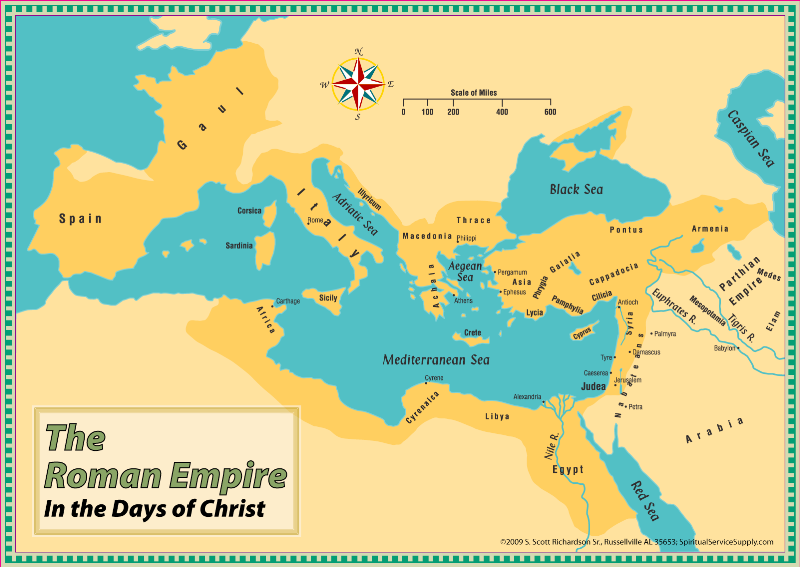sooda
Veteran Member
(I didn't write this)
PRETERISM 101
www.preteristcosmos.com/preterism101.html
PRETERISM 101 By David A. Green July, 2002. Following this brief article are 101 biblical, preterist "time-indicators." (Hence the title.) There are many more than 101 to be found in Scripture, but these are probably the most blunt and obvious of them all.
What is Preterism?
In short, Preterism is the theory that all (or most) of the events prophesied in the New Testament (including those in Revelation) were fulfilled in the past, specifically in 70 AD. The idea is that with the Roman siege of Jerusalem and destruction of the Temple, New Testament prophecies were fulfilled.
Full/Consistent Preterists believe this includes ALL prophecies even Jesus second advent, which they claim happened in 70 AD.
Partial/Moderate Preterist believe that Christ's second advent was not fulfilled in 70 AD (and may also exclude other selective prophetic events as well) But that the tribulation and all it implies happened in 70 AD.
Now, I believe that a partial or moderate preterist that believes all the essentials of the Christian Faith such as the Trinity, The virgin birth, the sinless life of Jesus, Salvation by grace alone through faith alone in the death, burial and resurrection of Jesus Christ alone as the propitiation for sins, are brothers and sisters in the faith and saved...
1. “The Kingdom of Heaven is at hand.” (Matt. 3:2 )
)
2. “Who warned you to flee from the wrath about to come?” (Matt. 3:7 )
)
3. “The axe is already laid at the root of the trees.” (Matt. 3:10 )
)
4. “His winnowing fork is in His hand.” (Matt. 3:12 )
)
5. “The kingdom of heaven is at hand.” (Matt. 4:17 )
)
6. “The kingdom of heaven is at hand.” (Matt. 10:7 )
)
7. “You shall not finish going through the cities of Israel, until the Son of Man comes.” (Matt. 10:23 )
)
8. “…the age about to come.” (Matt. 12:32 )
)
9. “The Son of Man is about to come in the glory of His Father with His angels; and will then recompense every man according to his deeds.” (Matt. 16:27 )
)
10. “There are some of those who are standing here who shall not taste death until they see the Son of Man coming in His kingdom.” (Matt. 16:28 ; cf. Mk. 9:1
; cf. Mk. 9:1
 ; Lk. 9:27
; Lk. 9:27
 )
)
11. “‘When the owner of the vineyard comes, what will he do to those vine-growers?’ ‘…He will bring those wretches to a wretched end, and will rent out the vineyard to other vine-growers, who will pay him the proceeds at the proper seasons.’ ‘…Therefore I say to you, the kingdom of God will be taken away from you, and be given to a nation producing the fruit of it.’ …When the chief priests and the Pharisees heard His parables, they understood that He was speaking about them.” (Matt. 21:40-41 ,43
,43
 ,45
,45
 )
)
PRETERISM 101
www.preteristcosmos.com/preterism101.html
PRETERISM 101 By David A. Green July, 2002. Following this brief article are 101 biblical, preterist "time-indicators." (Hence the title.) There are many more than 101 to be found in Scripture, but these are probably the most blunt and obvious of them all.
What is Preterism?
In short, Preterism is the theory that all (or most) of the events prophesied in the New Testament (including those in Revelation) were fulfilled in the past, specifically in 70 AD. The idea is that with the Roman siege of Jerusalem and destruction of the Temple, New Testament prophecies were fulfilled.
Full/Consistent Preterists believe this includes ALL prophecies even Jesus second advent, which they claim happened in 70 AD.
Partial/Moderate Preterist believe that Christ's second advent was not fulfilled in 70 AD (and may also exclude other selective prophetic events as well) But that the tribulation and all it implies happened in 70 AD.
Now, I believe that a partial or moderate preterist that believes all the essentials of the Christian Faith such as the Trinity, The virgin birth, the sinless life of Jesus, Salvation by grace alone through faith alone in the death, burial and resurrection of Jesus Christ alone as the propitiation for sins, are brothers and sisters in the faith and saved...
1. “The Kingdom of Heaven is at hand.” (Matt. 3:2
 )
)2. “Who warned you to flee from the wrath about to come?” (Matt. 3:7
 )
)3. “The axe is already laid at the root of the trees.” (Matt. 3:10
 )
)4. “His winnowing fork is in His hand.” (Matt. 3:12
 )
)5. “The kingdom of heaven is at hand.” (Matt. 4:17
 )
)6. “The kingdom of heaven is at hand.” (Matt. 10:7
 )
)7. “You shall not finish going through the cities of Israel, until the Son of Man comes.” (Matt. 10:23
 )
)8. “…the age about to come.” (Matt. 12:32
 )
)9. “The Son of Man is about to come in the glory of His Father with His angels; and will then recompense every man according to his deeds.” (Matt. 16:27
 )
)10. “There are some of those who are standing here who shall not taste death until they see the Son of Man coming in His kingdom.” (Matt. 16:28
 ; cf. Mk. 9:1
; cf. Mk. 9:1
 ; Lk. 9:27
; Lk. 9:27
 )
)11. “‘When the owner of the vineyard comes, what will he do to those vine-growers?’ ‘…He will bring those wretches to a wretched end, and will rent out the vineyard to other vine-growers, who will pay him the proceeds at the proper seasons.’ ‘…Therefore I say to you, the kingdom of God will be taken away from you, and be given to a nation producing the fruit of it.’ …When the chief priests and the Pharisees heard His parables, they understood that He was speaking about them.” (Matt. 21:40-41
 ,43
,43
 ,45
,45
 )
)
